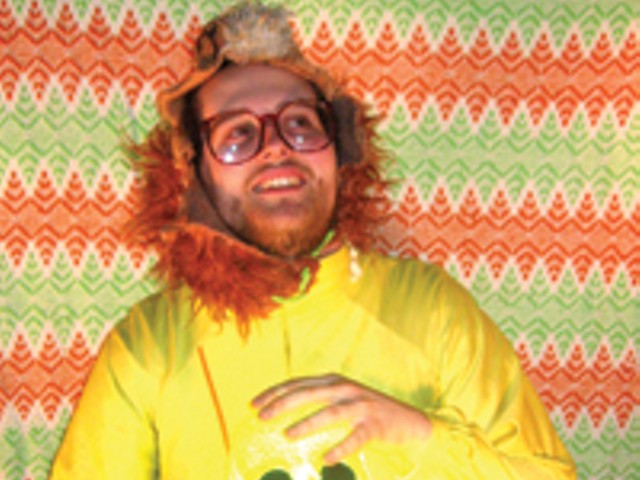"When it comes down to it, I got to make music. It's something inside of me. I'm going to play it at home or in a club. It doesn't matter," says saxophonist Skeeter Shelton lounging in his southwest Detroit home, surrounded by instruments imbued with great sentimental value. His greatest treasure is a set of drums he recalls learning to play on. The drums belonged to his dad, Joseph Shelton — better known as Ajaramu and something of a musical legend in some circles. The saxophonist's collection of horns sits atop the piano he inherited from his maternal grandparents, who raised him. Even the piano has a story.
"When I was 4, I would go down in the basement and make up songs on that piano," he says. The grandparents, both amateurs, played. Granddad would come home from the auto plant and "doodle on it" for hours.
Shelton looks much younger than his 57 years. His peers describe him as an unsung genius. Capable of playing with a fevered energy, he's an essential voice in the city's avant-garde fraternity, having performed in groups led by Faruq Z. Bey and with the group the Vizitors. Of late, he's been leading his own groups and jam session sets on Thursdays at Bohemian National Home.
"Skeeter is grossly underrated. He's one of the musicians who Detroiters are going to turn around and recognize," says bassist Hakim Jami, who often worked with Shelton before leaving for New York a few years ago.
Back in 1959 Shelton asked his dad for a clarinet to join the Boynton Elementary School band here in Detroit. His dad borrowed an alto sax from Gene ("Jug") Ammons, one of the pros the elder Shelton played with. "I played that alto all through grade school and high school until I got a paper route and bought my own horn," Shelton says.
He grew up in southwest Detroit, mostly with his grandparents, while his mom, a nurse, and dad were mostly in Chicago.
His dad played with musicians from straight-ahead types to free-jazz explorers. The latter included Sun Ra, during the bandleader's Chicago days, and the circle which formed the Association for the Advancement of Creative Musicians. The AACM Web site hails him as a founding member who knew "no peer in interpreting ethnic idioms."
Shelton recalls, in particular, his dad's work with straight-ahead sax giants Ammons and Sonny Stitt. He got to hang out with them when he visited Chicago, sometimes riding along with his dad and the cats when they drove to Detroit for gigs.
"Ammons played ballads with such passion, and Sonny was a masterful technician," says Shelton.
But he also felt the influence of saxophonists Eddie Harris (especially Harris' "Exodus") and John Coltrane (especially his "Africa"), who led to the still more volatile Pharoah Sanders and Albert Ayler. Shelton knew he'd find his own voice in their realm of structured mayhem. He began to develop that voice at Ferris State University — where he crossed paths with drummer Dushun Mosely and pianist Kenny Green, whom he plays with today in the Vizitors.
But in 1970, he was drafted and shipped to Fort Hood in Texas. After the service, he returned to Detroit, worked a couple years for the Fire Department, left to study music at Central Texas College, got married. His wife, Polema, introduced him to soul singer Joe Tex. Soon he was on the road.
"We stayed at the best hotels, and after each set Joe would pay us. I thought I was dreaming, "Shelton recalls. Still, he felt unfulfilled playing only rhythm and blues. In 1977, he left Tex; in 1980, he was back in Detroit, gigging with such musicians as saxophonists Bey and Anthony Holland. He's part of that scene ever since.
In 1998, Shelton put out Skeeter on his own, which featured his dad on drums and Jami on bass. To date, his best recorded work has been with bassist Jami. He's performed on Jami's albums Revealing (with James Blood Ulmer) and The Street Band Volume 1 and Volume 2. Shelton works steadily as a soloist at bars around town, but doesn't look to them to keep him afloat.
He has his day gig at the Veterans Administration Hospital and his music. One keeps him and his family fed; the other keeps him free at heart: "If I played nothing but music without having a day job I would end up playing what someone else wanted me to play. I would be in a trap. Right now I'm the boss of what I want to play."
Doors at 8 p.m. Thursdays in January at Bohemian National Home, 3009 Tillman St., Detroit; 313-737-6606; $5-$10.
Charles L. Latimer writes about jazz for Metro Times. Send comments to [email protected]




